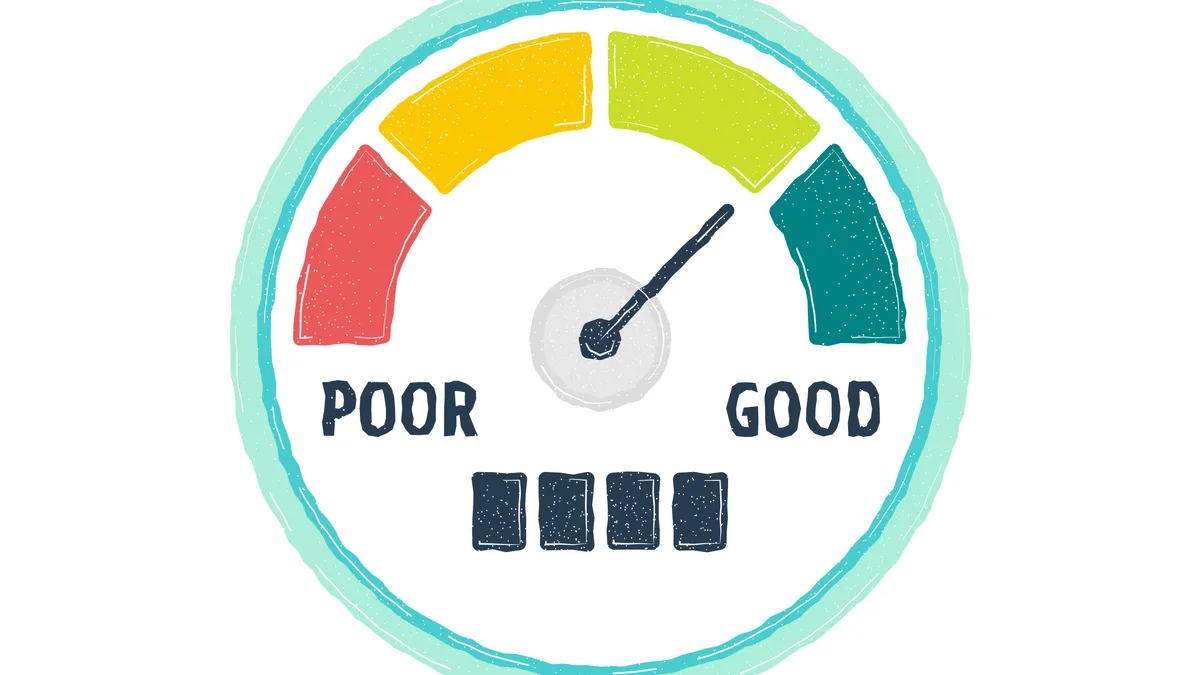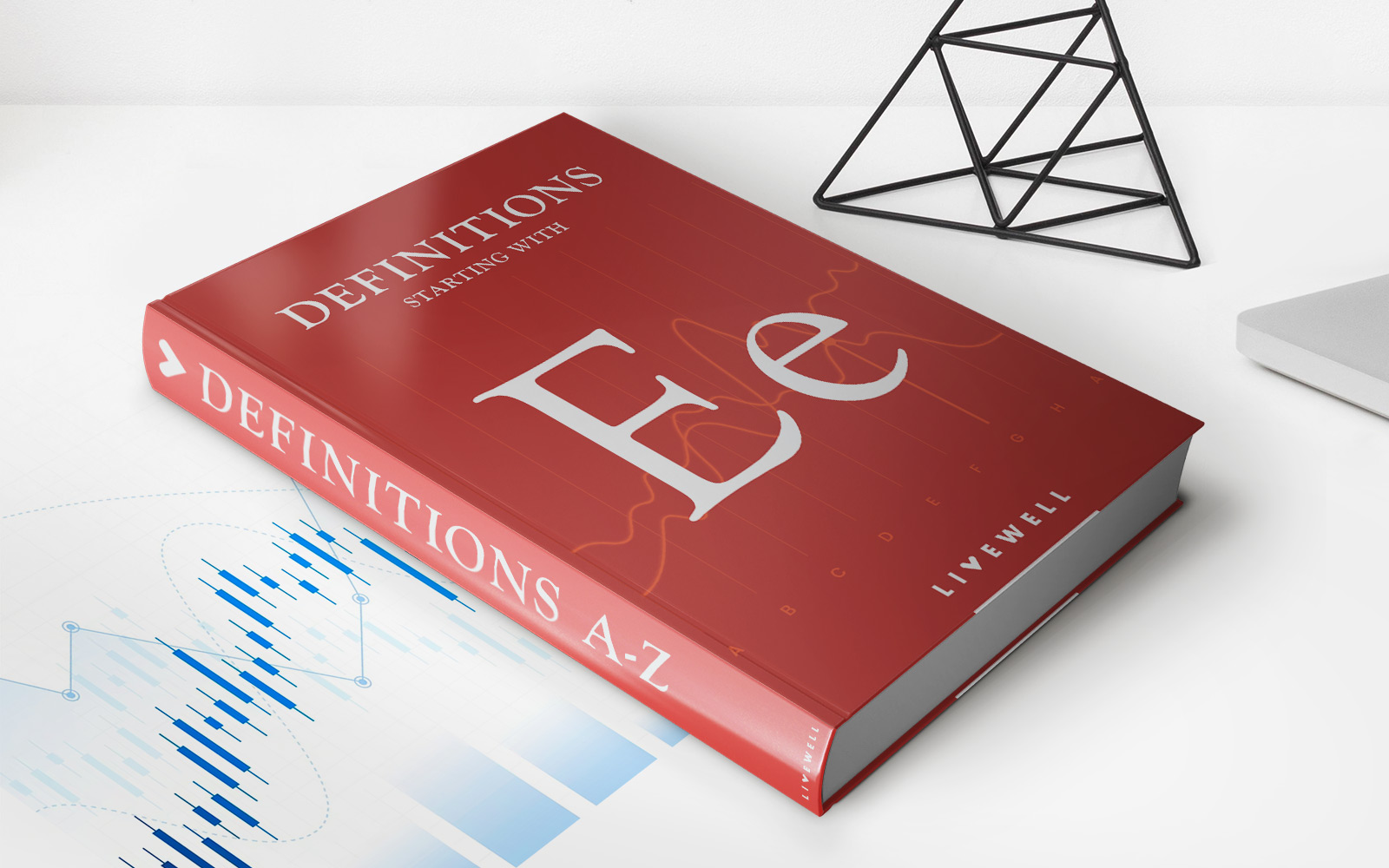

Finance
How Does Credit Inquiry Affect Score
Published: March 4, 2024
Learn how credit inquiries impact your finance score and understand the effects of multiple inquiries on your overall credit health. Discover ways to minimize the impact of credit inquiries on your finance.
(Many of the links in this article redirect to a specific reviewed product. Your purchase of these products through affiliate links helps to generate commission for LiveWell, at no extra cost. Learn more)
Table of Contents
Introduction
When it comes to managing your finances, understanding the factors that can impact your credit score is crucial. One such factor is the credit inquiry, which plays a significant role in determining your creditworthiness. Whether you’re applying for a loan, a credit card, or a mortgage, the process often involves a credit inquiry, which can have varying effects on your credit score.
As a conscientious consumer, it’s essential to comprehend the different types of credit inquiries, their implications, and how they can influence your financial standing. By gaining insight into this aspect of credit management, you can make informed decisions and take proactive steps to safeguard and improve your credit score.
In this comprehensive guide, we’ll delve into the intricacies of credit inquiries, shedding light on the distinction between soft and hard inquiries, their respective impacts on your credit score, and strategies to mitigate any adverse effects. By the end of this exploration, you’ll be equipped with the knowledge needed to navigate credit inquiries with confidence and prudence, empowering you to make sound financial choices while safeguarding your creditworthiness.
What Is a Credit Inquiry?
A credit inquiry, also known as a credit check or credit pull, occurs when a third party requests to view your credit report from one of the major credit bureaus, such as Equifax, Experian, or TransUnion. This inquiry provides the requesting party with insight into your credit history and helps them assess your creditworthiness when you apply for a new line of credit, such as a loan or a credit card. Essentially, it allows lenders to evaluate the level of risk associated with extending credit to you.
It’s important to note that there are two primary types of credit inquiries: soft inquiries and hard inquiries. Soft inquiries typically occur when you check your own credit report, when a potential employer conducts a background check, or when a company pre-approves you for a credit offer. On the other hand, hard inquiries take place when you apply for credit, such as when you submit a loan application or request a new credit card. Understanding the distinction between these two types of inquiries is essential, as they have differing impacts on your credit score.
Overall, credit inquiries serve as a tool for lenders and other authorized parties to assess your creditworthiness and make informed decisions regarding your applications for credit. By comprehending the nature of credit inquiries and their implications, you can navigate the credit application process more effectively and make strategic choices to protect and improve your credit standing.
Types of Credit Inquiries
When it comes to credit inquiries, it’s essential to understand the distinction between the two primary types: soft inquiries and hard inquiries. Each type serves a different purpose and has varying implications for your credit score and financial profile.
- Soft Inquiries: Soft inquiries, also referred to as “soft pulls,” occur in situations where a review of your credit report is conducted for informational purposes, rather than in response to a credit application. These inquiries do not impact your credit score and may occur without your explicit authorization. Common examples of soft inquiries include when you check your own credit report, when a potential employer conducts a background check, or when a company pre-approves you for a credit offer.
- Hard Inquiries: Hard inquiries, also known as “hard pulls,” take place when you apply for new credit, such as when you submit a loan application, request a credit limit increase, or apply for a new credit card. Unlike soft inquiries, hard inquiries are initiated as a result of your application for credit and can impact your credit score. Lenders typically perform hard inquiries to assess your creditworthiness and the level of risk associated with extending credit to you. It’s important to note that while a single hard inquiry may have a minor impact on your credit score, multiple inquiries within a short period can potentially have a more significant effect.
By recognizing the differences between soft and hard inquiries, you can gain insight into how various interactions with potential creditors and other authorized parties may affect your credit score. This understanding empowers you to make informed decisions when engaging in credit-related activities, ultimately contributing to the maintenance and enhancement of your overall financial health.
Soft Inquiries
Soft inquiries, also known as “soft pulls,” are credit checks that occur without your explicit authorization and do not impact your credit score. These inquiries are typically conducted for informational or promotional purposes and are not associated with a specific application for credit. As a result, they are not visible to lenders and do not affect your creditworthiness.
One common example of a soft inquiry is when you check your own credit report. Monitoring your credit report regularly is a responsible financial practice, allowing you to stay informed about your credit standing and identify any inaccuracies or potential issues. When you request your own credit report, it is considered a soft inquiry and has no bearing on your credit score.
Additionally, soft inquiries may occur when a potential employer conducts a background check as part of the hiring process. This type of inquiry is used to verify your identity and review your overall financial responsibility but does not impact your credit score. Similarly, when a company pre-approves you for a credit offer, they may conduct a soft inquiry to assess your eligibility without affecting your creditworthiness.
Understanding the nature of soft inquiries is essential, as it allows you to engage in activities such as credit monitoring and job searches without concern for their impact on your credit score. By recognizing when a credit check is classified as a soft inquiry, you can confidently take steps to manage and protect your credit profile without the fear of negative repercussions.
Hard Inquiries
Hard inquiries, also referred to as “hard pulls,” occur when you apply for new credit, such as a loan, mortgage, or credit card. Unlike soft inquiries, hard inquiries are initiated as a result of your application for credit and can impact your credit score. When a lender performs a hard inquiry, it is recorded on your credit report and may be visible to other creditors, potentially influencing their decisions regarding your creditworthiness.
It’s important to note that while a single hard inquiry typically has a minor impact on your credit score, multiple inquiries within a short period can potentially have a more significant effect. This is because frequent applications for credit may indicate financial distress or a higher level of risk to potential lenders. As a result, your credit score may experience a temporary decrease, reflecting the increased activity and potential risk associated with seeking new credit.
Examples of situations that may lead to hard inquiries include applying for a car loan, seeking a mortgage, or submitting an application for a new credit card. Each of these actions involves a formal request for credit, prompting the respective lenders to conduct hard inquiries to assess your creditworthiness and the associated risk.
While hard inquiries are a natural part of the credit application process, it’s advisable to approach new credit applications judiciously to minimize their potential impact on your credit score. Understanding the implications of hard inquiries empowers you to make informed decisions when seeking new credit, ultimately contributing to the maintenance and enhancement of your overall financial health.
How Does a Credit Inquiry Affect Your Credit Score?
A credit inquiry can have varying effects on your credit score, depending on whether it is classified as a soft inquiry or a hard inquiry. Understanding these effects is essential for managing your credit profile effectively and making informed financial decisions.
Impact of Hard Inquiries: Hard inquiries can have a direct and potentially negative impact on your credit score. When a lender performs a hard inquiry in response to your application for credit, it signals to the credit bureaus that you are actively seeking additional credit. As a result, your credit score may experience a slight decrease, reflecting the increased risk associated with taking on new debt. While the impact of a single hard inquiry is typically minimal, multiple inquiries within a short period can compound the effect and lead to a more significant reduction in your credit score.
Impact of Soft Inquiries: Unlike hard inquiries, soft inquiries do not affect your credit score. These inquiries are typically conducted for informational or promotional purposes and are not associated with a specific application for credit. Whether you check your own credit report, a potential employer conducts a background check, or a company pre-approves you for a credit offer, these activities have no bearing on your creditworthiness and do not impact your credit score.
It’s important to note that credit scoring models are designed to differentiate between hard and soft inquiries, ensuring that only hard inquiries are factored into your credit score calculation. By recognizing the distinction between these two types of inquiries, you can navigate the credit application process with greater awareness and take steps to minimize any potential negative impact on your credit score.
Impact of Hard Inquiries
Hard inquiries, which occur when you apply for new credit, can have a tangible impact on your credit score. While the effect of a single hard inquiry is typically minimal, multiple inquiries within a short period can compound the impact and potentially lead to a more significant reduction in your credit score.
When a lender performs a hard inquiry in response to your credit application, it signals to the credit bureaus that you are actively seeking additional credit. This activity may be interpreted as a potential risk factor, as it suggests an increased likelihood of taking on new debt. As a result, your credit score may experience a temporary decrease, reflecting the perceived risk associated with pursuing multiple credit opportunities simultaneously.
It’s important to note that the impact of hard inquiries on your credit score is considered within the context of your overall credit history and financial behavior. While a few hard inquiries may have a minor effect, they are unlikely to cause lasting damage to your credit score. However, a pattern of frequent and recent hard inquiries may raise concerns among potential lenders and could potentially impact your ability to secure new credit or favorable terms.
It’s advisable to approach credit applications judiciously and avoid unnecessary or excessive inquiries to minimize the potential impact on your credit score. By understanding the implications of hard inquiries and managing your credit applications strategically, you can maintain a healthy credit profile and enhance your overall financial well-being.
Impact of Soft Inquiries
Soft inquiries, also known as “soft pulls,” do not have any impact on your credit score. These inquiries are typically conducted for informational or promotional purposes and are not associated with a specific application for credit. Whether you check your own credit report, a potential employer conducts a background check, or a company pre-approves you for a credit offer, these activities have no bearing on your creditworthiness and do not impact your credit score.
One of the key benefits of soft inquiries is that they allow individuals to monitor their credit reports and explore credit-related opportunities without fear of negative repercussions. Checking your own credit report, for example, enables you to stay informed about your credit standing, identify any inaccuracies, and detect potential issues that may require attention. Similarly, when a company pre-approves you for a credit offer based on a soft inquiry, it provides an opportunity to explore credit options without affecting your credit score.
By differentiating between soft and hard inquiries, credit scoring models ensure that only hard inquiries, which result from credit applications, are factored into your credit score calculation. This distinction allows individuals to engage in credit monitoring, job searches, and other activities without concern for their credit score being impacted.
Ultimately, understanding the negligible impact of soft inquiries on your credit score empowers you to take proactive steps to manage and protect your credit profile. By leveraging the informational nature of soft inquiries, you can stay informed about your credit standing, explore credit opportunities, and make strategic financial decisions without the fear of negative credit score implications.
How to Minimize the Impact of Credit Inquiries
While credit inquiries are a natural part of the credit application process, there are several strategies you can employ to minimize their potential impact on your credit score and overall creditworthiness. By approaching credit applications judiciously and implementing proactive measures, you can navigate the credit landscape with greater confidence and protect your financial standing.
- Plan Your Credit Applications: Before applying for new credit, carefully assess your financial needs and the potential impact of additional credit on your overall financial health. By planning your credit applications strategically, you can minimize unnecessary inquiries and avoid overextending your credit profile.
- Consolidate Loan Shopping: When seeking a loan, such as a mortgage or auto loan, aim to complete your loan shopping within a focused period. Credit scoring models typically recognize that individuals may seek multiple loan options within a specific timeframe and treat these inquiries as a single event, reducing the potential impact on your credit score.
- Monitor Your Credit Report: Regularly monitoring your credit report allows you to stay informed about the inquiries made on your credit profile. This proactive approach enables you to detect any unauthorized or erroneous inquiries and take appropriate action to address them.
- Consider Pre-qualification: Explore pre-qualification options offered by lenders, which allow you to assess your eligibility for credit offers without a hard inquiry. Pre-qualification processes typically involve soft inquiries and provide insight into potential credit opportunities without impacting your credit score.
- Limit Unsolicited Credit Offers: If you prefer to minimize the number of pre-approved credit offers you receive, you can opt out of prescreened credit offers by contacting the credit reporting agencies. This can reduce the incidence of promotional inquiries on your credit report.
By implementing these proactive strategies, you can minimize the potential impact of credit inquiries on your credit score and maintain a healthy credit profile. Thoughtful credit management, informed decision-making, and a strategic approach to credit applications contribute to the preservation and enhancement of your overall financial well-being.
Conclusion
Understanding the intricacies of credit inquiries is essential for managing your credit score and overall financial health. By differentiating between soft and hard inquiries, individuals can navigate the credit application process with greater awareness and make informed decisions to protect their creditworthiness.
Hard inquiries, resulting from credit applications, have the potential to impact your credit score, especially if multiple inquiries occur within a short period. On the other hand, soft inquiries, which are typically for informational or promotional purposes, do not affect your credit score. Recognizing the distinction between these types of inquiries empowers individuals to engage in credit monitoring, job searches, and other activities without concern for negative credit score implications.
Strategic credit management, including planning credit applications, consolidating loan shopping, and monitoring credit reports, can help minimize the impact of inquiries on your credit score. Additionally, exploring pre-qualification options and limiting unsolicited credit offers can provide valuable insights into potential credit opportunities while mitigating the potential effects on your credit profile.
By leveraging this knowledge and implementing proactive measures, individuals can safeguard their creditworthiness, make informed financial decisions, and maintain a healthy credit profile. Ultimately, a balanced approach to credit inquiries contributes to long-term financial stability and empowerment in managing one’s financial future.














